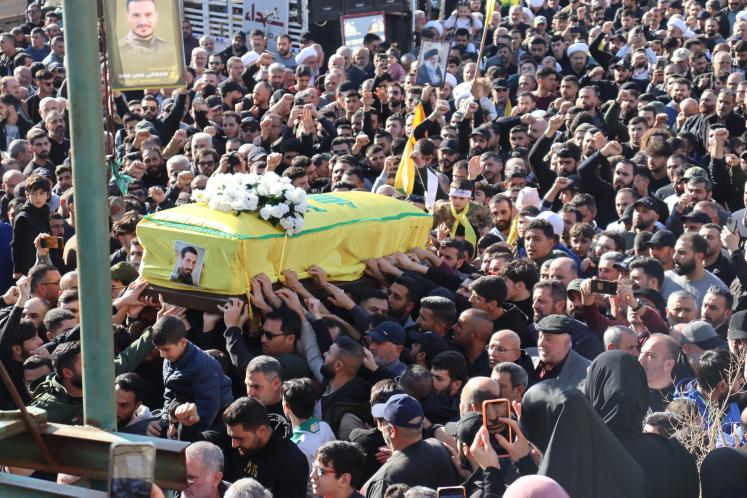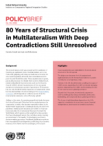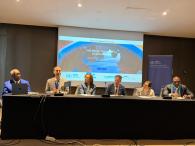On 28 January 2015, Hizbullah ambushed an Israeli military convoy near the Shebaa Farms area along the Lebanon/Israel border, killing two Israeli soldiers. Leaders on both sides of the border warned that the incident could drag Lebanon and Israel into another 2006 war, this time with even worse consequences. Yet within 48 hours, public messages were issued by Hizbullah, Iran, and Tel Aviv, indicating that no side wished to escalate into full-scale hostilities. Though tensions remained high, the incident did not become the kind of runaway conflict that we saw in 2006.
I was working for the UN Special Coordinator for Lebanon in 2015 and had a front row seat to how the UN helped all parties de-escalate at the time. Last week’s assassination of Hamas leader Saleh al-Arouri in the Hizbullah stronghold of southern Beirut has created a far greater risk of escalation. And this week’s killing of a Hizbullah commander in southern Lebanon (almost certainly by an Israeli airstrike) may be a sign that we are already edging closer towards a war. I am much less convinced today that we can avoid another war in Lebanon. But I believe many of the same lessons from the 2015 incident apply. Here are three ways the UN can use a preventive diplomacy role to reduce the risks of another devastating Israel/Lebanon war.
Get Everyone on Message
The UN is in a unique position: Only the UN is able to talk to Hizbullah and the governments in Tehran, Washington, and Tel Aviv. Given that Lebanon and Israel have no diplomatic ties, this ability to pass messages and clarify positions is crucial. In 2015, through a combination of phone calls, visits to Hizbullah leadership, and in-person meetings on both sides of the Israel/Lebanon border, the UN was able clarify the parties’ real positions. One of the most important moments was the publication of Hizbullah’s message to Israel that it did not wish to escalate.
We urgently need a similar set of de-escalatory messages from all parties in the wake of al-Arouri’s killing. Last November, Hizbullah leader Hassan Nasrallah’s statement that the Gaza conflict was an exclusively Palestinian issue helped to reduce fears that Hizbullah wished to become more involved. But his speech last week spoke of potential retaliation against Israel. Can the UN help to broker a common set of messages from all the parties that no one wishes to escalate? It may be the most important outcome of the coming week.
Slow it Down
Conflict risks tend to snowball. Driven by public sentiment and a sense of injustice, it is very easy to go from a relatively small incident (like the kidnapping of two Israeli soldiers in 2006) into a full-scale war. The recent killings could easily become an accelerant of a conflict that no party actually wants, making Hizbullah feel it must retaliate immediately, leading to a reciprocal action by Israel, and spiraling upward from there.
Here, the UN’s fact-finding and verification functions can play an important role in putting on the brakes. In 2015, the UN mission in Lebanon (UNIFIL) undertook an in-depth fact-finding process around the Hizbullah attack in the Shebaa Farms, working to identify the exact location of the incident, bringing the Israeli and Lebanon military together in a tripartite session on the border, and producing a report. Pretty boring stuff.
But it is exactly what is needed today: the UN should launch fact-finding processes into both the killing of Hamas’ Arouri and Hizbullah’s Al Tawil, engage Israel and Lebanon in tripartite talks, and try to put in place some short-term confidence-building measures along the Blue Line to reduce risks. Anything to slow things down.
Give Everyone a Ladder
One of the lessons I learned from working in the Middle East is that everyone needs to be able to tell their people that they won. Whether it’s Hizbullah proclaiming a victorious attack along the Blue Line or the Israeli Defense Forces claiming a successful operation in Beirut, each party needs to have a winning message at home. This need can become an accelerant of war if there is no way to simultaneously say “we won” and “it’s over for now.” The lack of a clear winning narrative drove the 2006 Israeli invasion of Lebanon, and it risks becoming one of the main risk factors in the aftermath of the recent killings. But a winning message can also become the ladder down from conflict.
Over the coming week, it is crucial that the UN helps the parties find a narrative that allows all sides to claim at least a partial victory. One of the most important venues for this is the UN Security Council, where a clear message reaffirming Lebanon’s territorial integrity and pointing to Hizbullah’s violations of many Council resolutions will give both sides some palatable messages at home. Such a message that speaks to the sovereignty of Lebanon should be reiterated by Washington to indicate that the US will not support another invasion like 2006.
To be clear: The UN is not in a position to stop a war if either Israel or Hizbullah decides to start one. I am sure that some of the diplomatic efforts I am describing here are in fact happening behind the scenes. But in the wake of the most recent attack in Hizbullah-controlled southern Lebanon and the rapidly rising rhetoric, we need to deploy every possible lesson from the past. I think 2015 shows us that the UN can play both a role of quiet diplomat and public forum to move the parties away from the brink.
Suggested citation: Adam Day., "How the UN Can Help Prevent Another Israel-Lebanon War," UNU-CPR (blog), 2024-01-10, 2024, https://unu.edu/cpr/blog-post/how-un-can-help-prevent-another-israel-lebanon-war.



